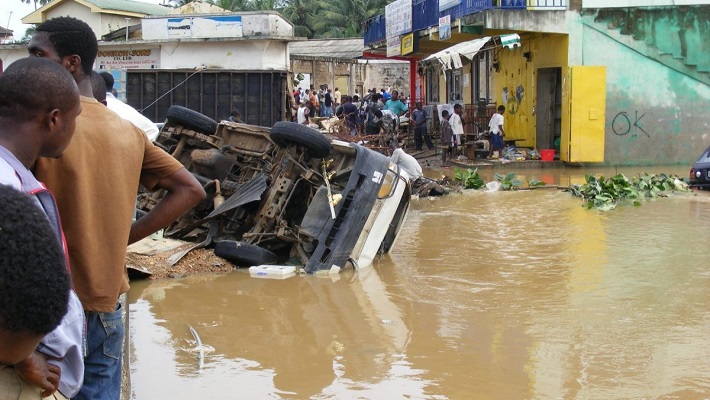By Paschal Norbert
ACCRA, NOVEMBER 17, 2023 (CISA) – “The spillage from the dams into Lake Volta has now been halted, but the devastation remains. Thousands of people have already lost their homes, crops, and livestock because of the flooding. There could be disease outbreaks and devastating long-term impacts on hunger as 200,000 hectares remain covered by water,” stated Daniel Mumuni, the Catholic Relief Services (CRS) country representative in Ghana.
In a press release dated November 14, CRS noted that the flooding caused by the overflowing of two hydroelectric dams at Akosombo and Kpong has been severely affecting the south-eastern regions of Ghana, with at least 26,000 people already displaced from their homes.
On September 15, high water levels in the Akosombo reservoir, which threatened the structural integrity of the dam led the Volta River Authority to start a controlled spillage process of the Akosombo and Kpong hydroelectric dams, a crisis coupled with the heavy rains resulted in a devastating destruction of homes and farmlands along the banks of the River Volta.
“We have moved most of the affected people to a safe haven. About 26,000 mostly women and children have been displaced,” stated Seji Saji, the Deputy Director General of the National Disaster Management Organization (NADMO).
The widespread flooding that has created a humanitarian challenge downstream in several communities in parts of the Volta, Eastern and Greater Accra regions has also disrupted access to essential services such as access to water and electricity.
CRS states that the flooding, “poses environmental and health risks like waterborne diseases such as cholera, dysentery and typhoid.”
“The situation is critical. We need more support to reach the most vulnerable people and prevent any outbreak of disease,” Mumuni said.
According to CRS and given the scale of the disaster, “the current level of assistance from the government and other partners has been insufficient to meet the overwhelming needs of the affected population, which include food, shelter, clothing and safe drinking water.”
“We have just concluded a rapid assessment of the situation together with the local diocese and other stakeholders. Though the spillage has stopped, and the flood water is gradually receding, it is still difficult to reach people,” noted the CRS country representative.
The international humanitarian relief agency says that assistance to the over 25,000 families is likely to include emergency shelter, clean drinking water, cash transfers for food and other essentials, medical supplies, access to functioning health insurance and psychosocial support.
It however, contends that even though families have been moved to ‘safe havens’ that is schools and churches established by the government, “the longer families are removed from their homes, the longer their children are missing school, and the larger the impact gets on their lives.”
CRS explains, “The Volta Lake, which usually absorbs the excess water from the Akosombo and Kpong dams, has overflowed due to the magnitude of water spilt from the dams. Inflows from the Bagre dam in Burkina Faso earlier this year, and persistent rains led to the water levels of the two dams rising beyond safe limits. The last time there was a dam spillage was in 2010. Access to the more than 80 flooded communities has been difficult, as many roads have been submerged or destroyed by the floods. Boats are currently the only means of transportation for rescue and emergency aid.”

